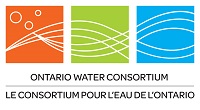Ontario has a strong track record of water innovation. Today, companies across the province are developing ground-breaking technology to treat water and wastewater better, faster and more cost effectively. But bringing a new product to market and driving adoption aren’t simple tasks. That’s why OWC launched our Expert Panels last fall.
When an enterprise has specific questions, we convene our pool of industry insiders, including municipal end users and consultants, as well as former and current corporate executives from major water tech companies. After a brief presentation from the company, the panel asks questions and offers advice on the spot. They then follow up with more detailed feedback after the meeting.
Aclarus Ozone: Tapping growth gurus and export experts
Aclarus Ozone was the first to take advantage of this new offering. The Peterborough company has developed a next-generation advanced ozone system that delivers superior disinfection, is chemical-free, energy efficient, cost effective and environmentally friendly.
Initially, they focussed on cottage and residential applications. However, they also saw big potential in municipal and industrial sectors. To help them make the shift, OWC provided an Advancing Water Technologies grant, allowing the company to optimize their ozone delivery processes and collect crucial data to prove to larger customers the superior disinfection and cost-effectiveness of their system.
Aclarus systems are now uniquely designed, engineered, and tested for small to mid size applications for populations up to 100,000. Applications include drinking water, wastewater, groundwater, reuse water, stormwater, process water and clean-in-place sanitation.
The pivot paid off. Today, Aclarus has grown to 15 employees and enjoys year-over-year sales growth of 38 per cent. They’ve also accumulated an impressive list of awards and recognition, including honours from Water Canada, MaRS and Yahoo Finance in 2020 alone.
To date, Aclarus has over 1000 client installations, in 9 countries in commercial, industrial and municipal applications, including First Nations communities. Aclarus ozone treats complex water problems including pathogens, chemical pollutants, manganese, metals, iron and organics as well as contaminants of emerging concern such as pharmaceuticals, petrochemicals and micro-plastics. Aclarus currently treats more than 100 million gallons of water annually without chemicals.
“We know this is the way of the future,” says Adam Doran, the company’s co-founder and VP of sales and marketing.
Now, the challenge is to manage growth and avoid spreading themselves too thin. For advice, Doran turned to OWC’s Expert Panel in November 2020. During the two-hour session, panelists discussed the potential pitfalls of exporting, suggested strategies for breaking into U.S. markets and delved into the pros and cons of working with distributors versus manufacturers.
Doran left with valuable insights, as well as the confidence that Aclarus was heading in the right direction. “The panel they put together was awesome,” he says. “they were engaging and insightful.”
Based on that feedback, Aclarus has re-positioned their marketing strategy from a Canada B-C focus to an International B-B focus. This new strategy includes a new website rebuild, newsletter, case studies and social media content in preparation for an aggressive focus on exports. Doran predicts big growth in the coming years. “We’re striving and growing towards being a hundred-million-dollar company,” he says.
IPEX: Charting a strategic path forward
The next month, OWC pulled together a second Expert Panel: this one to answer questions from IPEX. The Oakville company — a division of the multinational Aliaxis — is North America’s biggest supplier of plastic piping.
IPEX knows the world of pipes, fittings and valves inside out. But the company had ventured into new territory when they developed Vortex Force. This cleverly designed device can aerate wastewater without relying on moving parts or energy-hungry blowers.
It works by splitting incoming wastewater into two chambers, one with clockwise flow and one with counter-clockwise flow. When the two streams then merge, the resulting turbulence incorporates big doses of air.
IPEX began selling Vortex Force for use in pressurized sewage mains to prevent the anaerobic conditions that produce hydrogen sulphide, creating odours and the risk of corrosion.
Now, the company sees opportunities to use it in wastewater treatment facilities, where electricity to run blowers is the single biggest operating cost. By supplementing those blowers — or replacing them altogether — Vortex Force can help operators slash both carbon emissions and energy bills.
However, IPEX wanted answers to some important questions as they forge this new path. Should they target municipalities or private sector operations like pulp and paper mills? What information do prospective customers care about? How long would it take to make inroads? “We were really looking for some direction and insights,” says David Ohayon, IPEX’s Canadian market development manager.
OWC’s Expert Panel provided key advice, suggesting IPEX segment its markets further and target lower-hanging fruit. They also emphasized the need for collecting the energy efficiency metrics that potential customers will look for. “It really enlightened us,” says Ohayon.
The insights helped IPEX design pilot projects to gather those metrics and build convincing case studies. Today, the company is preparing to launch those trials — one at a wastewater treatment plant and another at a wastewater lagoon — where they will compare the efficiency and cost of their system with traditional aeration.
Ohayon praises the value of the Expert Panel and hopes to tap their expertise again once IPEX has results from the pilot projects. “It was a very good cross-section of experienced and knowledgeable people,” he says. “It helped us to determine where it is that our next steps were going to be taking place.”
Helping Ontario companies make their mark
Thanks to services like the Expert Panel, OWC is helping Aclarus, IPEX and other innovators make the right moves. For Doran, the Expert Panel is the latest example of what the Consortium does best: combining deep technical know-how with extensive networks in the sector to make things happen.
“And that’s important,” he says. “Because cleantech is going to be a massive part of our country’s infrastructure and future if we play it right.”
Want to learn more about OWC’s Water Technology Expert Panels?


